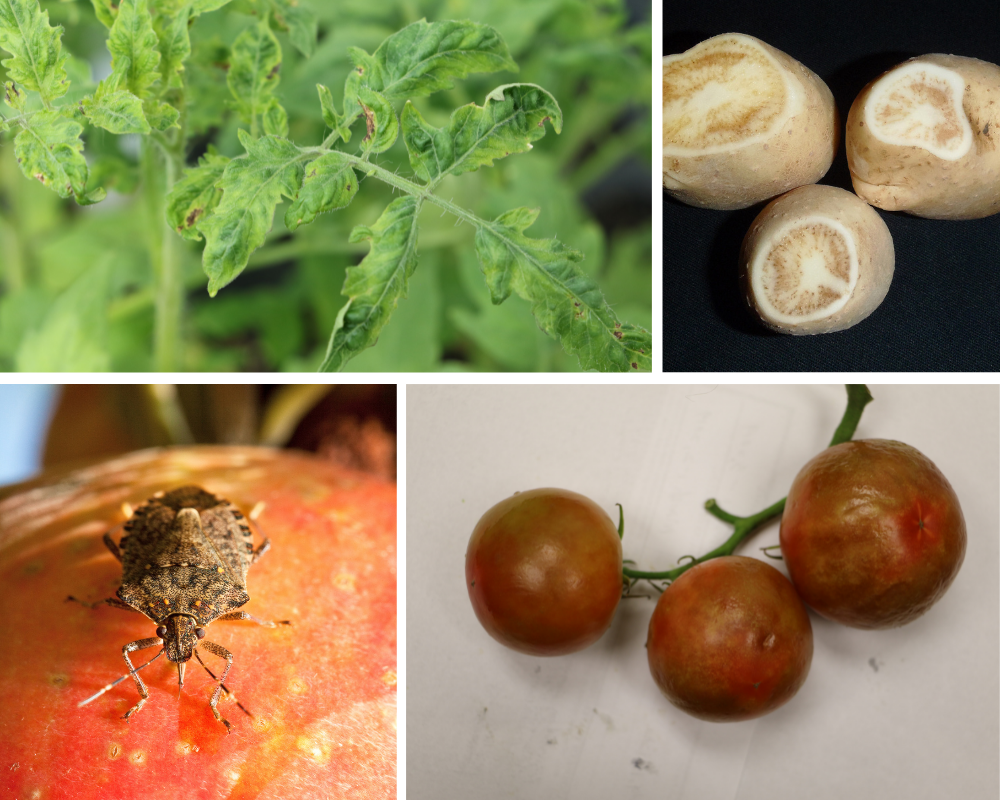International Day of Plant Health

Plant Health Task Force – 2022
The PROCINORTE Plant Health Task Force with representatives from Canada, Mexico, and the United States is pleased to see that the United Nations has officially declared May 12th to be the International Day of Plant Health. This day will continue the awareness towards plant health that was started during the 2020 International Year of Plant Health and will be a reminder each year of the many issues faced to protect plant health and maintain a sufficient food supply to feed the world and diverse commodities to provide comfort.
According to the United Nations, the world’s population will be nearly 10 billion people by 2050. This amounts to a need for producing 56% more food to feed the 3 billion more people. Compounding this problem is urban expansion, which is estimated to result in approximately 2 percent loss of global croplands by 20301 and yield losses on food crops estimated to be 10-20%, including up to 40% on maize, potato, rice, soybean and wheat due to plant pests. Plant diseases are estimated to cost the global economy USD220 billion annually2. The effects of climate change are also predicted to affect yields. Global yield losses of rice, maize, and wheat due to insects are projected to increase by 10 to 25% per degree of global mean surface warming3. In addition, plant pests and diseases can also have a negative impact on trading opportunities and the bioeconomy.
Once a plant pest or pathogen becomes established, it is extremely difficult and costly to manage. Therefore, international collaborations are essential to monitor and detect potential transboundary pests that will help to limit their spread and avoid establishment. The PROCINORTE Plant Health Task Force has provided opportunities for scientists from Canada, Mexico, and United States to meet and establish collaborations on various pest issues relative to the three countries since 2011. Workshops have been organized on topics such as brown marmorated stinkbug, molecular insect taxonomy, pests and diseases of solanaceous plants, whitefly transmitted viruses, zebra chip disease on potatoes, tomato viruses, herbicide resistant weeds, and invasive insect pests that threaten North America agriculture. These meetings have produced collaborative research projects, joint publications, and training. In addition, during the pandemic, the Plant Health Task Force has sponsored two virtual webinar series that were attended by more than 200 people worldwide on important plant health topics such as tomato brown rugose fruit virus, herbicide resistance, and invasive insect pests.
In the future, the Plant Health Task Force recognizes the importance of continuing and expanding international collaborations to help feed the increasing population and end world hunger by reducing loss due to plant pathogens and pests. The Task Force is also looking into ways to expand collaborations beyond Canada, Mexico, and the United States. We intend to continue outreach activities such as sponsoring informative webinars on topics such as climate change, biological control and greenhouse production with limited pesticide input.
During the Day of Plant Health, we invite everyone to reflect upon the role that growers, researchers, policy makers, and consumers have on plant health to maintain and increase food security. The Plant Health Task Force is committed to educating the public on plant health and welcome further dialogue on any related topic.
1d’Amour, C.B., Reitsma, F., and Baiocchi, G. 2016. Future urban land expansion and implications for global croplands. PNAS 114:8939-8944. https://doi.org/10.1073/pnas.1606036114)
2Savary, S., Willocquet, L., Pethybridge, S.J., Esker, P., McRoberts, N., Nelson, A. 2019. The global burden of pathogens and pests on major food crops. Nat Ecol Evol 3, 430–439. https://doi.org/10.1038/s41559-018-0793-y
3Deutsch, C.A., Tewksbury, J.J., Tigchelaar, M., Battisti, D.S., Merrill, S.C., Huey, R.B., and Naylor, R.L. 2018. Increase in crop losses to insect pests in warming climate. Science 361:916-919.
Authors:
Timothy Widmer, Plant Health Task Force Committee Chair, U.S.A.
José Isabel Lopez-Arroyo, Plant Heath Task Force Committee Member, Mexico
Sergio Paulo, Plant Health Task Force Committee Member, Canada